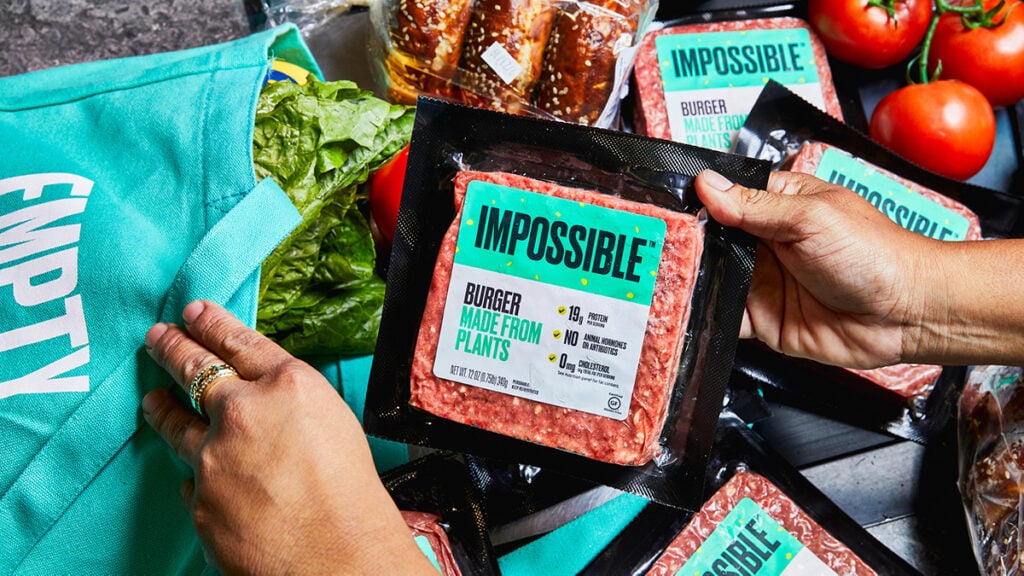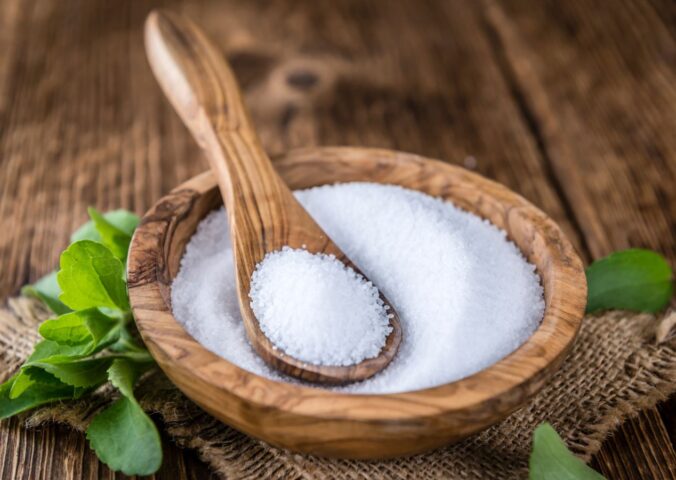Impossible Foods has quickly become one of the biggest plant-based meat brands in the world. Some people have questioned, however, whether its vegan burger ingredients are healthier than those of meat versions.
The Impossible Burger has been applauded for its environmental benefits – using 96 percent less land and 87 percent less water than beef. In addition, the plant-based patty reportedly produces 89 percent fewer greenhouse gas emissions than cow meat.
But, when it comes to health, opinions are stirred.
Is the Impossible Burger healthy?
In February 2021, renowned physician and bestselling author Dr. Michael Greger published a video comparing the Impossible Burger to beef from an animal.
“Plant-based burgers win when it comes to trans fat and cholesterol,” he stated. He went on to say that trans fat is a serious potential risk factor for cardiovascular disease, cancer, and diabetes. Greger also said that it’s been linked with symptoms of depression, lower testosterone, and dementia.
“Higher levels of trans fats in the blood are associated with up to 50 percent higher risk of developing dementia including Alzheimer’s,” he said.
Greger stated that any intake level of trans fat above 0 percent can increase cholesterol concentration and is not advised.
Is the Impossible Burger healthier than meat?
He also compared the Impossible Burger to meat. He said that, unlike beef, it contains no hormones, no antibiotics, and isn’t designated as “probably cancer-causing” by the World Health Organization.
However, he did point out that an Impossible patty contains 370 mg of sodium. This is around a quarter of the American Heart Association’s ideal daily limit of 1500mg.
When it comes to saturated fat, Greger says beef and the Impossible Burger both contain 8g of it.
“But these do seem to be outliers,” he added. “The largest study of the nutritional value of plant-based meats to date [shows] saturated fat levels of similar products only average about two grams per serving – much better than the animal-based equivalent.”
‘Proccessing plants can eliminate fiber’
Greger continued: “Well, if you look at the fiber content, for example, yes, to see any fiber in a burger is a good thing. But compare that to a whole food… If you ate the same amount of protein from yellow peas, there’d be almost no saturated fat and sodium and a whopping 20 grams of fiber.
He went on to say that processing plants can eliminate 90 percent of fiber. The physician added, however, that processing plants “through animals” will eliminate 100 percent of it.
He concluded that, while dietary guidelines should continue to emphasize a diet rich in plant-based foods such as nuts, seeds, and legumes, when it comes to opting for Impossible Burger over beef: it’s a “no brainer.”
‘Substantially better for consumers’
Last year, Impossible Foods CEO Pat Brown responded to critics who claimed the brand’s patties are unhealthy.
In an interview with CNBC Make It, Brown said its products are “substantially better for consumers than what it replaces.”
“It replaces a burger made from a cow, not a kale salad. So, if you’re saying this isn’t the ultimate ‘superfood’ – you’re right,” he argued.
“But it’s intended to be a product that is healthier for the consumer than a burger made from a cow [and it’s] better for the planet than a burger made from a cow. And for many consumers, [it’s] more delicious.”
RELATED: Is Beyond Meat Healthy? And Is It Healthier Than Meat?






